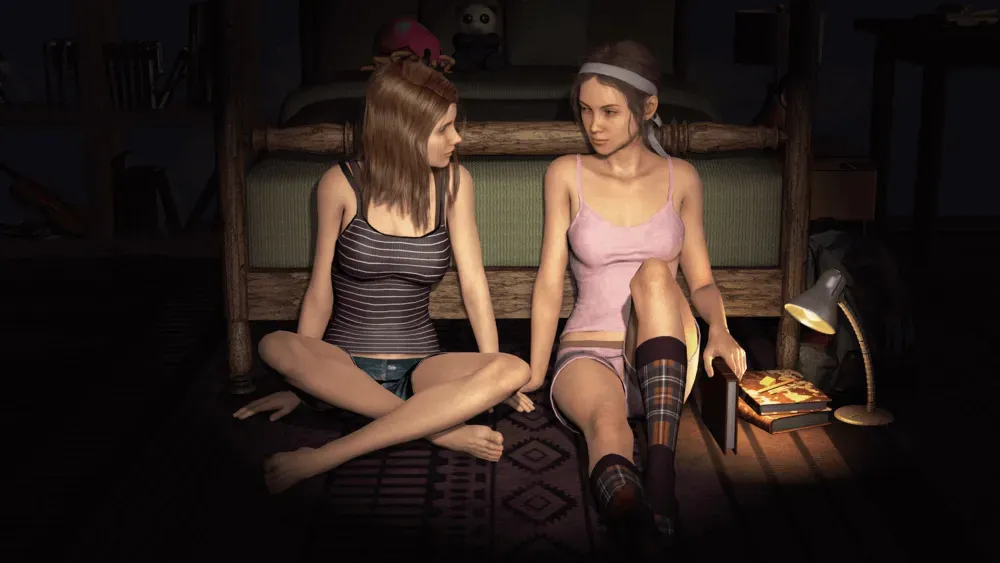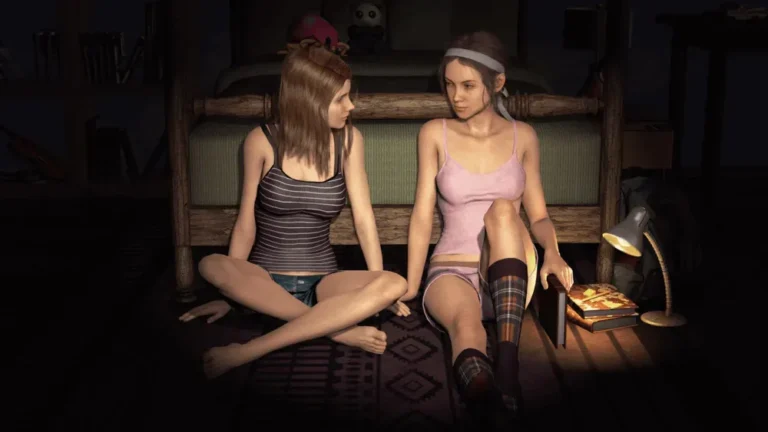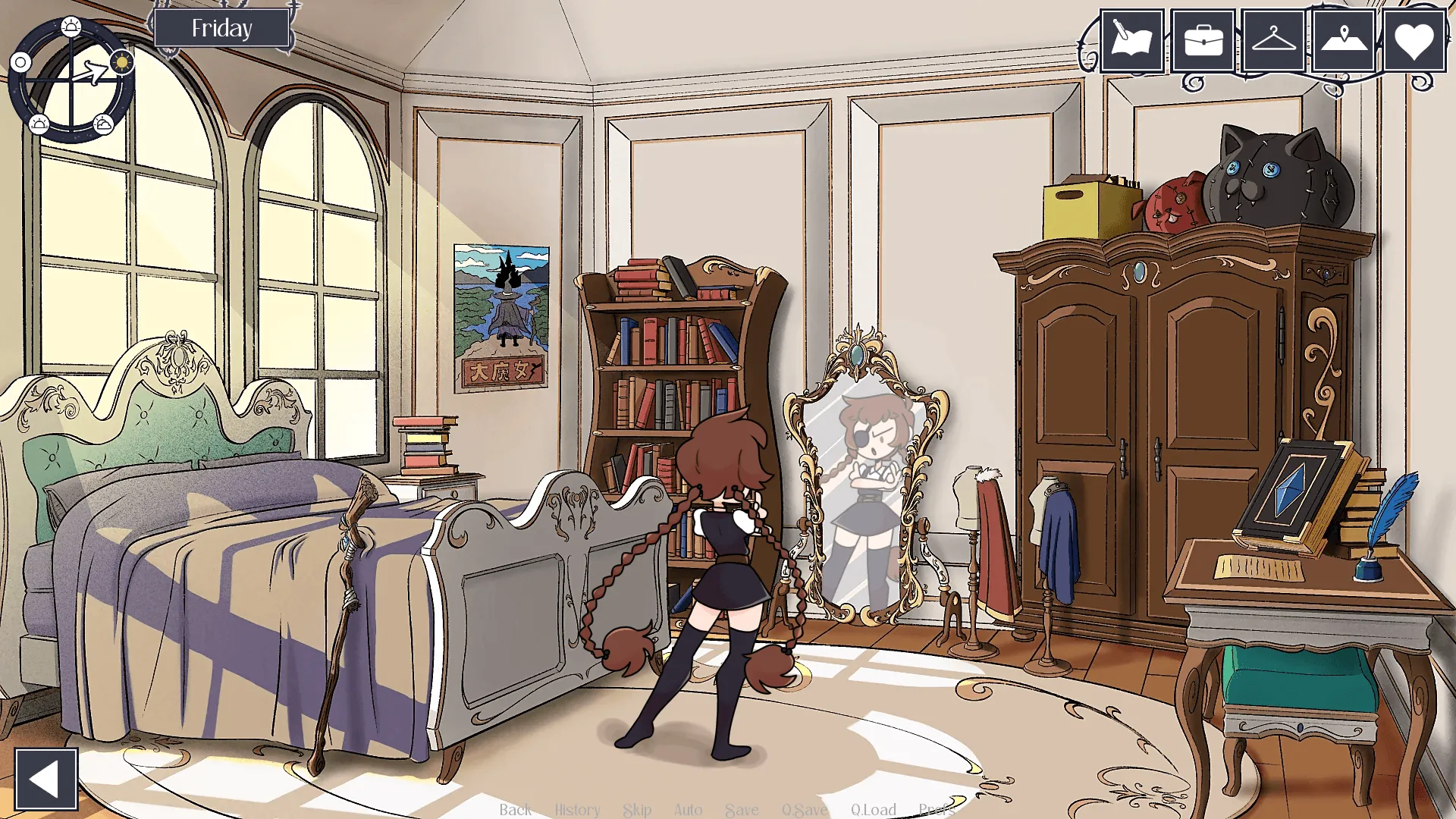
Short Sad Stories
Play Short Sad Stories
Short Sad Stories review
Exploring the Emotional Depths of the Short Sad Stories Interactive Game
Short Sad Stories is an evocative interactive game that immerses players in a poignant narrative centered around Alice, a dreamy girl caught between reality and imagination. This game blends storytelling with emotional exploration, offering a unique experience that resonates deeply with its audience. In this article, we dive into what makes Short Sad Stories compelling, how it engages players, and why it stands out in its genre.
Understanding the Narrative and Themes of Short Sad Stories
Have you ever played a game that lingered with you long after you put down the controller? One that didn’t just entertain you, but genuinely moved you? That’s the unique space Short Sad Stories occupies. It’s less a traditional game and more an intimate, interactive journey into the human heart. The Short Sad Stories game narrative is its core, a delicate tapestry woven from threads of memory, love, and profound loss, and it’s this narrative that transforms a simple play session into a personal experience. 😢
This chapter is your guide to understanding the emotional machinery behind this remarkable game. We’ll explore the character who guides us through this journey and uncover the powerful themes that make the story so unforgettable.
Who is Alice? Exploring the Protagonist’s Journey
At the center of this poignant experience is Alice. The Alice character story is not one of epic battles or world-saving quests, but something far more relatable and, in many ways, more brave: a journey through grief. We meet Alice in the quiet, hollowed-out aftermath of a significant loss. She isn’t a superhero; she’s you, she’s me, she’s anyone who has ever had to figure out how to breathe again after the air has been knocked out of them.
The game masterfully introduces us to her inner world not through lengthy expositions, but through subtle environmental details and her own fleeting thoughts. You’ll find yourself piecing together her past, her relationship with the person she lost, and the weight of her sorrow purely through interaction and exploration. Her journey is one of slow, painful, but ultimately necessary acceptance.
“Sometimes, I still set the table for two. It’s a silly habit, but my heart hasn’t caught up with what my head knows.”
Reading that stopped me in my tracks the first time I encountered it. It’s a simple line, but it captures the entire essence of Alice’s struggle—the devastating gap between intellectual understanding and emotional reality. This is the power of the Short Sad Stories game narrative; it finds the universal in the specific. As you guide Alice, you aren’t just controlling a character; you are, in a small way, accompanying her, feeling the echoes of her sadness as your own. 💔
Themes of Love, Loss, and Imagination
The emotional weight of Short Sad Stories is carried by three deeply interconnected themes. These emotional themes in Short Sad Stories are not just topics; they are the very fabric of the game’s world and the player’s experience.
Love and Loss: This is the engine of the entire story. The game explores love and loss in games with a startling authenticity. It’s not about the dramatic moment of loss itself, but the aching, quiet emptiness that follows. The love story is told in reverse, through cherished memories that now bring pain, and through the spaces in Alice’s life where someone used to be. This makes the experience profoundly personal, as it inevitably calls upon your own understanding of love and the fear of its absence.
Imagination and Reality: Alice’s grief is so powerful that it blurs the lines of her perception. This exploration of imagination and reality in gaming is central to the gameplay. Is that shadow in the corner just a trick of the light, or a memory trying to take form? Is the whispered voice just the wind, or a message from the past? The game brilliantly uses this ambiguity to put you inside Alice’s head, making you question what is real alongside her. Her imagination becomes both a refuge from her painful reality and a prison that keeps her trapped in the past. 🎭
To see how these themes contrast and intertwine, let’s look at their core elements:
| Theme | Manifestation in Reality | Manifestation in Imagination |
|---|---|---|
| Love | An empty chair, a cold cup of coffee, a silent home. | Vivid, warm flashbacks of laughter and conversation; the ghost of a touch. |
| Loss | The practical emptiness and daily reminders of absence. | Dreamlike sequences where Alice can almost speak to her lost loved one; a world tinged with melancholy. |
How the Storyline Shapes Player Emotion
So, how does this all come together to create such a powerful game narrative emotional impact? The secret lies in its masterful use of interactive storytelling. You are not a passive observer of Alice’s sadness; you are an active participant in her process of grieving.
The Short Sad Stories game narrative is built on meaningful choices and environmental interaction. You decide whether Alice looks at an old photograph or puts it away. You choose if she revisits a cherished location or tries to avoid it. These aren’t choices about “good” or “bad” endings; they are choices about how to grieve. There is no right answer, which mirrors the confusing and non-linear nature of real-life loss. This level of interactive storytelling creates a deep sense of empathy and responsibility. The emotional payoff—or heartbreak—feels earned because you helped shape it.
I remember one particular moment where I had to choose between packing away a box of mementos or leaving it out. I sat there, controller in hand, for a solid minute, genuinely torn. It felt less like a game mechanic and more like a real ethical and emotional dilemma. That’s the game narrative emotional impact at its finest. It uses its mechanics not to challenge your reflexes, but to engage your heart. ❤️🩹
The gameplay loop itself reinforces this:
* Discovery: You find objects and locations that trigger memories.
* Choice: You decide how Alice interacts with these memory triggers.
* Consequence: You experience the resulting emotional shift, which changes the atmosphere and reveals more of the story.
This approach to interactive storytelling ensures that the emotional themes in Short Sad Stories are felt, not just read. You don’t learn that Alice is sad; you feel the weight of her world through your actions. The imagination and reality in gaming aspects keep you off-balance, ensuring that the experience is contemplative and haunting, rather than straightforward. By the end, the story isn’t just something you witnessed; it’s something you helped unfold, making its final moments of clarity or acceptance incredibly powerful. The journey through love and loss in games has never felt more personal or more true. ✨
Short Sad Stories offers a deeply personal and emotional gaming experience that invites players to connect with its narrative on a profound level. By exploring themes of love, loss, and the interplay between reality and imagination, the game stands out as a unique storytelling medium. Whether you are drawn to interactive narratives or seeking a game that resonates emotionally, Short Sad Stories is a compelling choice. Dive into this intimate world and experience the story for yourself.









